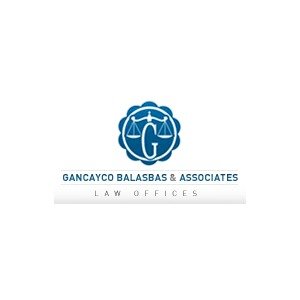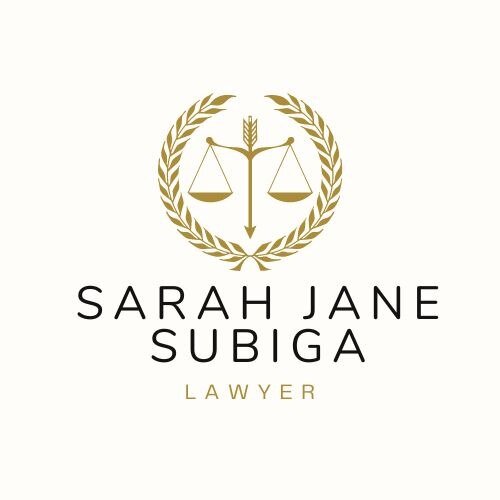Best Bankruptcy Lawyers in Manila
Share your needs with us, get contacted by law firms.
Free. Takes 2 min.
List of the best lawyers in Manila, Philippines
About Bankruptcy Law in Manila, Philippines
Bankruptcy law in Manila, Philippines provides a legal process through which individuals or businesses facing insurmountable debt can seek relief and the opportunity to start afresh. It is governed by the Financial Rehabilitation and Insolvency Act of 2010, which outlines the various procedures and regulations related to bankruptcy.
Why You May Need a Lawyer
Seeking legal assistance when dealing with bankruptcy is crucial to ensure that your rights are protected and that you navigate the complex legal processes effectively. Here are common situations where you may need a lawyer:
- If you are facing the threat of bankruptcy and need guidance on potential alternatives or strategies to address your financial difficulties.
- If you decide to file for bankruptcy, a lawyer can help you with the proper documentation, assessing the best bankruptcy chapter to file under, and ensuring compliance with the required procedures.
- If a creditor is challenging your bankruptcy claim or if you encounter legal disputes during the process, a lawyer can provide representation and advocate for your interests.
- In cases involving business bankruptcy, legal assistance is often necessary to handle issues related to asset liquidation, debt restructuring, or business reorganization.
Local Laws Overview
Understanding the key aspects of local bankruptcy laws in Manila, Philippines is essential. Some important points to consider include:
- The two primary bankruptcy chapters are Chapter 7 (Liquidation) and Chapter 11 (Rehabilitation).
- Chapter 7 entails the sale of assets to repay creditors, while Chapter 11 involves restructuring debts to enable the debtor to continue operating their business.
- To initiate bankruptcy proceedings, you must file a petition with the appropriate court and provide a detailed schedule of your assets, liabilities, and financial affairs.
- The court will appoint a liquidator or rehabilitation receiver to oversee the bankruptcy process and ensure equitable distribution of assets.
- Bankruptcy proceedings can be complex and time-consuming, involving multiple court hearings, creditor meetings, and negotiations. Compliance with court orders and deadlines is crucial.
Frequently Asked Questions
1. What debts can be discharged through bankruptcy?
Bankruptcy can potentially discharge various types of unsecured debts, such as credit card debts, medical bills, personal loans, and utility bills. However, certain obligations, including student loans, child support, and tax debts, may not be dischargeable.
2. Will I lose all my assets if I file for bankruptcy?
Under bankruptcy law, some assets may be exempt from liquidation or subject to certain limits. These exemptions can include your primary residence, necessary personal belongings, pensions, and tools of trade. However, non-exempt assets may be sold to repay creditors.
3. Can bankruptcy stop foreclosure on my home?
Filing for bankruptcy can temporarily halt foreclosure proceedings through an automatic stay. However, it may only provide a temporary delay, and the ultimate resolution of the foreclosure will depend on the specific circumstances and the bankruptcy chapter filed.
4. How long does bankruptcy stay on my credit report?
A bankruptcy filing can remain on your credit report for up to 10 years. However, its impact on your creditworthiness lessens over time, and taking steps to rebuild your credit can help improve your financial standing.
5. Can I file for bankruptcy without an attorney?
While it is possible to file for bankruptcy without an attorney (pro se), it is not advisable. The bankruptcy process involves complex legal matters, and a lawyer can provide the necessary expertise to navigate the system successfully and protect your rights.
Additional Resources
If you need further information or assistance regarding bankruptcy law in Manila, Philippines, consider reaching out to the following resources:
- The Supreme Court of the Philippines - Official website providing access to legal resources, court rules, and information on bankruptcy proceedings.
- Financial Rehabilitation and Insolvency Practitioners of the Philippines (FRIPP) - An organization of professionals specializing in bankruptcy and insolvency, offering consultation services and resources.
- Legal Aid Foundation of the Philippines - A non-profit organization that provides free legal assistance to individuals who cannot afford legal representation.
Next Steps
If you require legal assistance in bankruptcy in Manila, Philippines, follow these steps:
- Assess your financial situation and determine if bankruptcy is the most suitable option.
- Research and select a reputable bankruptcy lawyer familiar with Manila's bankruptcy laws.
- Contact the selected lawyer to schedule a consultation and discuss your specific circumstances.
- During the consultation, provide all relevant financial documents and disclose information truthfully to enable the lawyer to evaluate your case accurately.
- If you decide to proceed with bankruptcy, work closely with your lawyer to gather the required documents and file the necessary bankruptcy petition with the appropriate court.
- Follow your lawyer's guidance throughout the bankruptcy process and attend all court hearings and meetings as required.
- Work towards rebuilding your financial health and adhering to the obligations outlined in the bankruptcy proceedings.
Lawzana helps you find the best lawyers and law firms in Manila through a curated and pre-screened list of qualified legal professionals. Our platform offers rankings and detailed profiles of attorneys and law firms, allowing you to compare based on practice areas, including Bankruptcy, experience, and client feedback.
Each profile includes a description of the firm's areas of practice, client reviews, team members and partners, year of establishment, spoken languages, office locations, contact information, social media presence, and any published articles or resources. Most firms on our platform speak English and are experienced in both local and international legal matters.
Get a quote from top-rated law firms in Manila, Philippines — quickly, securely, and without unnecessary hassle.
Disclaimer:
The information provided on this page is for general informational purposes only and does not constitute legal advice. While we strive to ensure the accuracy and relevance of the content, legal information may change over time, and interpretations of the law can vary. You should always consult with a qualified legal professional for advice specific to your situation.
We disclaim all liability for actions taken or not taken based on the content of this page. If you believe any information is incorrect or outdated, please contact us, and we will review and update it where appropriate.










